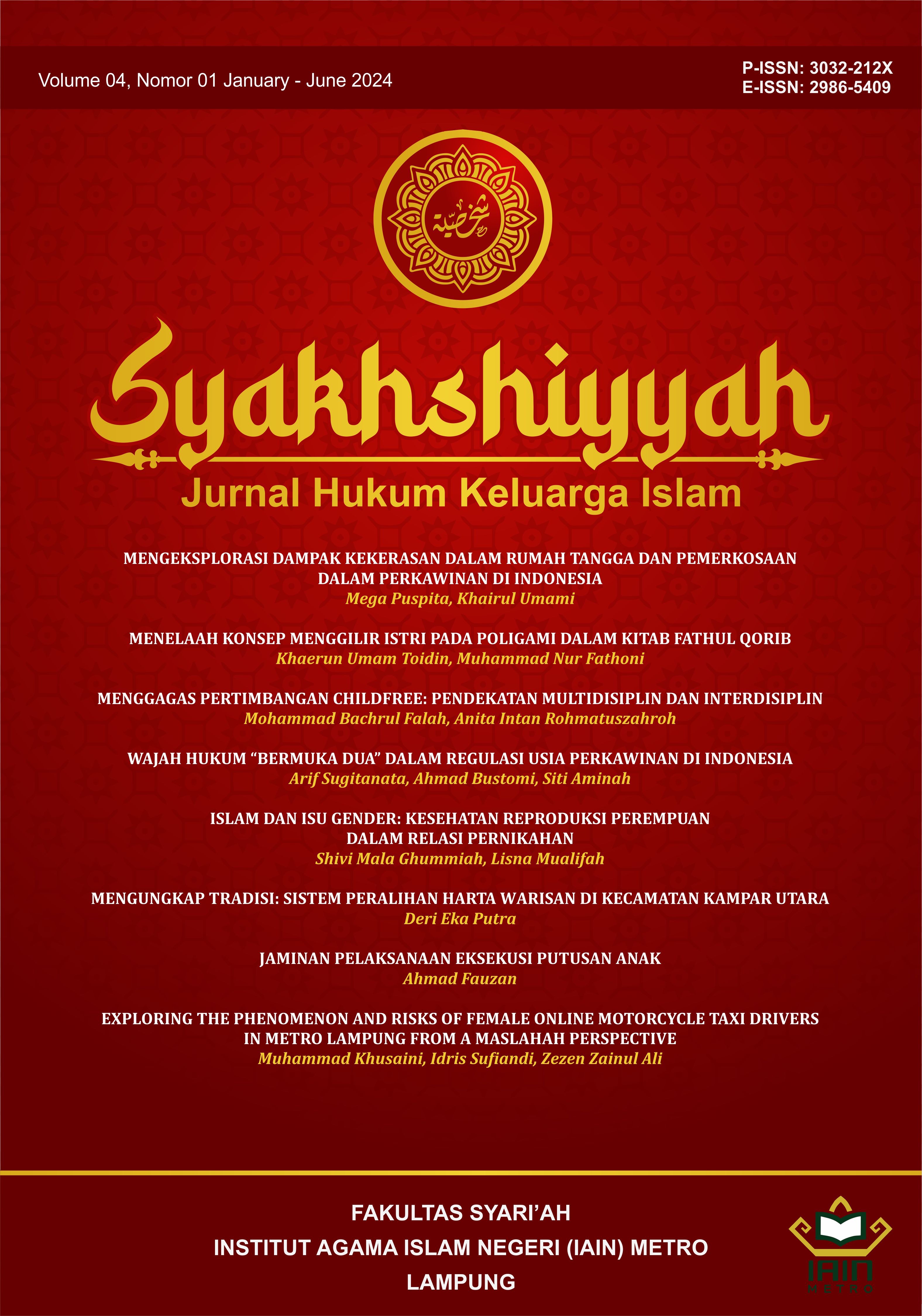Jaminan Pelaksanaan Eksekusi Putusan Anak
DOI:
https://doi.org/10.32332/syakhshiyyah.v4i1.9370Keywords:
Court Order; Child Support; Divorce; Wage Garnishment.Abstract
A problem that arises in practice in the Indonesian justice system is that many alimony decisions in the Religious Courts are not carried out (or in procedural law terms "executed") voluntarily by the ex-husband, either in part or in whole. Conditions like this surely have the logical consequence that the court decision must be carried out/executed by legal force. One of the latest forms of forced execution practices regarding this issue is the deduction of men's wages from their place of work. The aim of this research is to analyze the implementation of the garnishment system of salaries and/or allowances for child support decisions in the Religious Courts? This type of research is normative research using statutory and conceptual approach. The legal materials used in this research consist of all legal sources that have permanent legal force, and secondary legal materials in the form of journals, books and related scientific works. The results of this research conclude that although there are several statutory provisions that regulate salary deductions for post-divorce support, such as the provisions that apply to civil servants, there are still several other practical challenges, for example in the case of ex-husbands not belonging to the civil servant group like employees in BUMN or even in private company employees.








